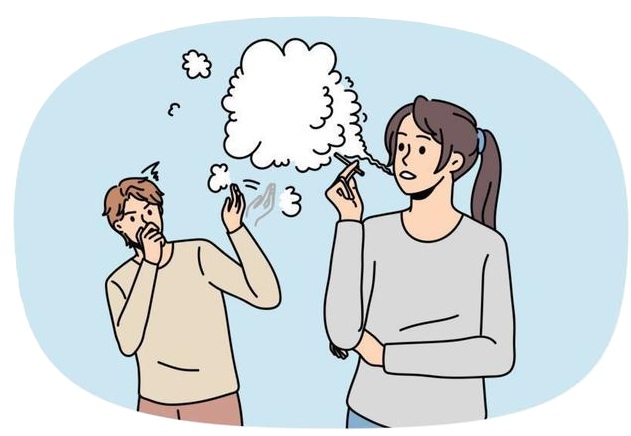Addictions and Habit Correction

Need Guidance On Your Problems?
Consult With The Best Online Counsellors
Per Session Price 6000/-
Now 3000/- (50% OFF)
-

-
NAVNEET BHATNAGAR
Hindi
Exp :5 Years
₹11/Min Free
-

-
YOGENDRA PAL SINGH
English,Hindi
Exp :1 Years
₹11/Min Free
-

-
SHRILAKSHMI HANUMASAGAR
English,Hindi,Marathi,Sanskrit,Kannada
Exp :5 Years
₹11/Min Free
🔗 Addictions and Habit Correction
Break free from unhealthy habits. Take back control of your life.
At HealersMeet, we understand how hard it can be to overcome addictions and repetitive habits. Our expert healers use gentle yet powerful therapies to help you release these patterns from the root—so you can live freely, confidently, and with purpose.
🌿 We Help With:
-
Smoking & Alcohol De-addiction
- Quit smoking or drinking naturally, without stress or withdrawal.
- Heal the emotional triggers behind the addiction.
-
Technology & Screen Addiction
- Reduce excessive phone, social media, or gaming use.
- Regain focus, balance, and peace of mind.
-
Overeating & Unhealthy Food Cravings
- Control emotional eating and develop mindful eating habits.
- Reach your ideal weight without harsh diets.
-
Procrastination & Lack of Motivation
- Break the cycle of delay and inaction.
- Build discipline, focus, and a positive mindset.
-
Nail Biting, Hair Pulling, and Other Repetitive Habits
- Overcome compulsive habits gently and effectively.
- Rewire your mind for calm and self-control.
🌀 Healing Methods We Use:
- Hypnotherapy – Reprogram the subconscious mind to release addiction.
- Energy Healing (Reiki, Chakra Balancing) – Calm cravings and emotional triggers.
- Counseling & Mind Power Training – Build mental strength and positive habits.
- Meditation & Breathwork – Create inner peace and self-discipline.
✨ Why Choose Us?
- Personalized healing plans
- Safe, natural, and non-invasive methods
- Long-term support for lasting change
- Confidential and compassionate guidance
You have the power to change. Let us help you reclaim your freedom.
🌱 Book your first healing session today and start your journey to a better you.
?FAQ :Addictions and Habit Correction:
1. What is addiction?
Addiction is a condition in which an individual engages in compulsive behavior despite harmful consequences. It can be related to substances (e.g., alcohol, drugs, nicotine) or behaviors (e.g., gambling, food, technology, shopping). Addictions can lead to physical, emotional, and psychological dependence, making it difficult for individuals to stop or control the behavior without intervention.
2. What is the difference between an addiction and a habit?
A habit is a behavior that is repeated regularly, while an addiction is a behavior that becomes compulsive and interferes with daily life. The key difference is that habits are typically under control, whereas addictions often involve an inability to stop or reduce the behavior despite negative consequences. Addiction can result in physical and psychological dependence, while habits may or may not have the same level of impact.
3. How can I break a bad habit?
Breaking a bad habit requires commitment and self-awareness. Here are steps that can help:
- Identify triggers: Understand what prompts the habit and address those triggers.
- Replace the habit: Substitute the bad habit with a positive, healthier alternative.
- Set clear goals: Make your goal to break the habit specific, measurable, and time-bound.
- Stay consistent: Practice the new behavior regularly until it becomes second nature.
- Seek support: Find accountability partners or professional help (e.g., therapy or coaching).
- Be patient: Habits take time to change, and setbacks are normal. Stay persistent.
4. What are the signs of addiction?
Signs of addiction include:
- Loss of control: An inability to stop or reduce the behavior despite wanting to.
- Neglect of responsibilities: Focusing on the addictive behavior at the expense of work, relationships, or self-care.
- Tolerance: Needing more of the substance or behavior to achieve the same effect.
- Withdrawal symptoms: Experiencing physical or psychological discomfort when trying to stop or reduce the behavior.
- Continued use despite negative consequences: Persisting in the behavior despite harm to health, relationships, or life quality.
- Time and energy spent: Spending excessive time thinking about, engaging in, or recovering from the addiction.
5. How can I overcome an addiction?
Overcoming addiction typically requires a combination of strategies:
- Self-awareness: Acknowledge the addiction and your desire to change.
- Therapy: Cognitive Behavioral Therapy (CBT), addiction counseling, or group therapy can help address underlying issues and provide strategies for managing triggers and cravings.
- Support groups: Joining support groups like Alcoholics Anonymous (AA) or Narcotics Anonymous (NA) provides a community of individuals with similar struggles.
- Detox and rehab: In some cases, medical intervention or treatment in a rehabilitation center may be necessary, especially for severe addictions.
- Healthy coping mechanisms: Learn and practice coping strategies like mindfulness, relaxation techniques, exercise, or meditation.
6. Can addiction be cured?
Addiction is a chronic condition, meaning it may not have a "cure" in the traditional sense. However, it is possible to manage addiction effectively through ongoing treatment, support, and lifestyle changes. Many people in recovery lead fulfilling, sober lives, but addiction requires continuous effort and vigilance.
7. What are common treatment options for addiction?
Treatment for addiction can vary depending on the type and severity of the addiction. Common options include:
- Detoxification: The first step in many treatment plans to remove substances from the body safely.
- Inpatient rehab: A residential program where individuals receive intensive therapy, counseling, and support in a controlled environment.
- Outpatient rehab: Treatment that allows individuals to live at home while attending therapy and support sessions.
- Therapy and counseling: Cognitive Behavioral Therapy (CBT), Dialectical Behavior Therapy (DBT), or Motivational Interviewing (MI) to address the mental and emotional aspects of addiction.
- Support groups: Group counseling, 12-step programs (e.g., AA or NA), or non-12-step programs to provide community and shared experiences.
8. Can addiction be prevented?
While not all addictions are preventable, there are ways to reduce the risk:
- Education and awareness: Teaching individuals about the dangers of addictive behaviors and substances can promote healthier decision-making.
- Develop healthy coping mechanisms: Learning how to deal with stress, anxiety, or emotional challenges in constructive ways can prevent people from turning to substances or harmful behaviors.
- Supportive environments: Strong family and social support networks can provide protection against addiction.
- Early intervention: Addressing unhealthy habits or early signs of addiction before they escalate can prevent full-blown addiction.
9. How does addiction affect the brain?
Addiction impacts the brain's reward system, particularly the areas involved in pleasure, motivation, and memory. Substances or behaviors associated with addiction trigger the release of dopamine, a neurotransmitter that creates feelings of pleasure and reinforcement. Over time, the brain becomes reliant on this stimulation, and the person needs more of the addictive substance or behavior to achieve the same feeling, leading to tolerance and dependence.
10. What are withdrawal symptoms, and how can they be managed?
Withdrawal symptoms occur when a person stops or reduces their addictive behavior or substance use. Symptoms can include:
- Physical symptoms: Sweating, shaking, headaches, nausea, insomnia
- Emotional symptoms: Anxiety, depression, irritability, mood swings
- Cravings: Intense desire to return to the addictive behavior or substance
Managing withdrawal often requires professional help and support, particularly for severe cases. Medical detox programs may be necessary for certain addictions (e.g., alcohol, opioids) to ensure safe withdrawal and minimize risks.
11. How do I know if I need professional help for my addiction?
You might need professional help if:
- Your addiction is negatively impacting your relationships, job, or overall well-being.
- You have tried to quit but have been unsuccessful multiple times.
- You experience intense cravings or withdrawal symptoms when attempting to stop.
- You’re unable to function or fulfill your responsibilities due to the addiction.
- You have an underlying mental health condition, such as depression or anxiety, that contributes to the addiction.
Seeking professional help early can increase the chances of successful recovery.
12. What is habit correction, and how is it different from breaking an addiction?
Habit correction involves changing patterns of behavior that are not necessarily addictive but may still be unhealthy or unwanted (e.g., procrastination, unhealthy eating, or lack of exercise). It’s typically more about making positive changes and breaking repetitive behaviors that do not have the same compulsive or dependency-driven nature as addiction.
In habit correction, strategies like goal-setting, mindfulness, and replacing negative habits with positive ones can be effective. Addiction, on the other hand, often requires more comprehensive treatment and support, including addressing psychological, emotional, and physical dependencies.
13. Can mindfulness and meditation help in overcoming addiction or correcting habits?
Yes, mindfulness and meditation can be very helpful in both addiction recovery and habit correction. They help by:
- Increasing self-awareness: Mindfulness practices help individuals understand their triggers and reactions.
- Reducing cravings: Mindfulness can train individuals to observe cravings without acting on them.
- Stress management: Meditation and mindfulness techniques can reduce the anxiety and stress that often contribute to addictive behaviors.
- Promoting emotional regulation: Both mindfulness and meditation help manage emotions, reducing the need to rely on substances or unhealthy habits as coping mechanisms.
14. Is it possible to "replace" an addiction with a new habit?
Yes, it is possible to replace an addiction with a healthier habit, but this requires careful planning and patience. Often, individuals replace an unhealthy addiction with another behavior that is positive (e.g., exercise, creative pursuits, or learning new skills). This new habit must be rewarding enough to help the individual stay engaged and avoid relapse into the previous addictive behavior.
Feel better. Move freely. Live fully.
Start your journey to comfort and balance today with HealersMeet.


